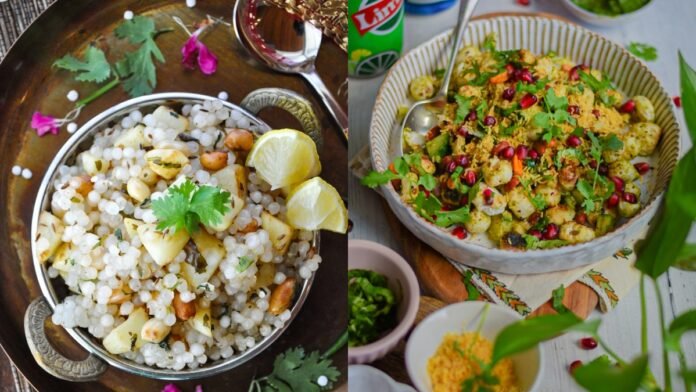Chaitra Navratri, a nine-day Hindu festival dedicated to the worship of Goddess Durga, is not just a time for spiritual reflection and devotion but also an occasion for dietary changes and fasting rituals. During this auspicious period, many devotees observe fasting, abstaining from certain foods as a form of penance and purification. However, it’s essential to maintain a balanced and nutritious diet even while fasting to ensure good health and vitality throughout the festivities.
While fasting during Chaitra Navratri, it’s crucial to choose foods that provide sustained energy and essential nutrients to support overall well-being. Here’s a comprehensive food guide to help you navigate through the fasting period and make informed dietary choices:
What to Eat:
- Fruits: Incorporate a variety of fresh fruits such as bananas, apples, oranges, and grapes into your diet. These fruits are rich in vitamins, minerals, and antioxidants, providing essential nutrients to keep you energized during fasting.
- Vegetables: Opt for nutrient-rich vegetables like potatoes, sweet potatoes, pumpkin, and spinach. These vegetables are not only filling but also packed with fiber, vitamins, and minerals to support digestive health and boost immunity.
- Dairy Products: Include dairy products such as milk, yogurt, and paneer in moderation. These dairy foods are excellent sources of protein and calcium, essential for maintaining muscle mass and bone health.
- Nuts and Seeds: Snack on a handful of nuts and seeds like almonds, walnuts, and pumpkin seeds. These nutrient-dense snacks are high in healthy fats, protein, and fiber, providing sustained energy and satiety during fasting.
- Grains and Legumes: Consume whole grains like buckwheat, amaranth, and quinoa, as well as legumes such as chickpeas, lentils, and mung beans. These foods are rich in complex carbohydrates and plant-based protein, offering a steady source of energy and promoting feelings of fullness.
What to Avoid:
- Grains: Refrain from consuming grains like wheat, rice, and oats during fasting. Instead, opt for gluten-free alternatives such as buckwheat flour, water chestnut flour, and tapioca pearls.
- Non-Vegetarian Foods: Avoid meat, fish, and eggs during Navratri fasting, as these foods are considered tamasic and unfit for consumption during religious observances.
- Processed Foods: Steer clear of processed and packaged foods, including fried snacks, sweets, and sugary beverages. These foods are high in unhealthy fats, sugars, and additives, which can have adverse effects on health.
- Onions and Garlic: Some people choose to avoid onions and garlic during Navratri fasting, as they are believed to possess negative energy and disturb the equilibrium of the mind and body.
- Excessive Salt and Spices: Limit the intake of salt and spices, as excessive consumption can lead to water retention and digestive discomfort. Instead, use mild spices like cumin, coriander, and black pepper sparingly to enhance flavor.
In addition to focusing on what to eat and avoid during Chaitra Navratri fasting, it’s essential to pay attention to meal timings and portion sizes. Many people prefer to have small, frequent meals throughout the day to prevent hunger pangs and maintain energy levels. Breaking the fast with a nutritious meal consisting of fruits, dairy products, and nuts can help replenish energy stores and kickstart metabolism after a night of fasting.
Furthermore, incorporating hydrating beverages like coconut water, herbal teas, and lemon water into your fasting regimen can help prevent dehydration and support detoxification. These beverages not only keep you refreshed but also aid in flushing out toxins from the body, promoting overall health and well-being.
Moreover, while fasting during Navratri, it’s crucial to avoid overindulgence and practice mindful eating habits. Take the time to chew your food slowly, savoring each bite, and listen to your body’s hunger and fullness cues. Avoiding distractions like television or electronic devices during meals can help foster a deeper connection with your food and promote mindful eating practices.
Additionally, incorporating physical activity into your daily routine during Navratri fasting can help enhance overall well-being and promote optimal health. Engage in light exercises like walking, yoga, or stretching to improve blood circulation, boost mood, and alleviate stress. However, it’s essential to consult with a healthcare professional before starting any new exercise regimen, especially during fasting periods.
Overall, Chaitra Navratri fasting provides an opportunity for spiritual renewal, self-reflection, and physical rejuvenation. By following a balanced and nutritious diet, practicing mindful eating habits, staying hydrated, and engaging in regular physical activity, you can ensure a healthy and fulfilling fasting experience while honoring the traditions and customs of this auspicious festival.

